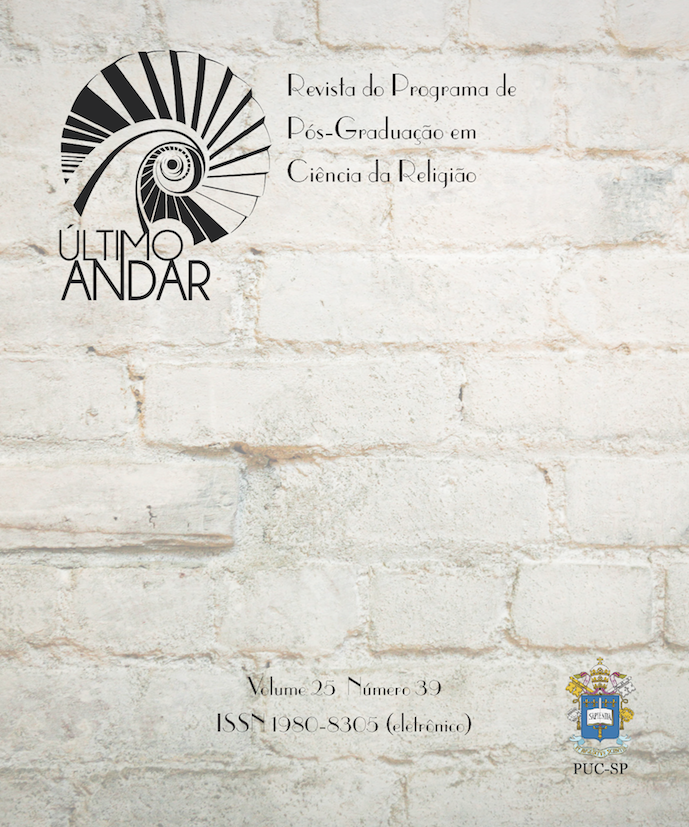Vampirism
socioliterary notes on the perpetration of violence
DOI:
https://doi.org/10.23925/ua.v25i39.51621Keywords:
vampires, literature, social science, social representation, violenceAbstract
The present text aims to explore the relationship between literature and social sciences, in how it reveals situations of invisibility, symbolic precariousness and lack of social representativeness, and how this can trigger violence in numerous instances. From a historical-materialist and post-structuralist perspective of literature and the social sciences, an analysis of the vampire myths and some of their implications for society is made.
References
BINGEMER, Maria Clara. Teologia e literatura: afinidades e segredos compartilhados. Petrópolis, RJ: Vozes e Editora PUC Rio, 2015.
BOURDIEU, Pierre. A economia das trocas simbólicas. São Paulo: Perspectiva, 2015.
CALMET, Augustin. Dissertação sobre os regressantes em corpo, os excomungados, os upiros ou vampiros, brucolaque. In: Antologia do vampiro literário. CARVALHO, Bruno Berlendis (org). São Paulo: Berlendis & Vertecchia, 2010.
CÂNDIDO, Antônio. A literatura e a formação do homem. In: Textos de intervenção. São Paulo: Duas Cidades e Editora 34, 2002.
CÂNDIDO, Antônio. O direito à literatura. In: Vários escritos. São Paulo: Duas Cidades, 1995.
CARVALHO, Bruno Berlendis. (In)definições do vampiro. In: Antologia do vampiro literário. CARVALHO, Bruno Berlendis (org). São Paulo: Berlendis & Vertecchia, 2010.
DERRIDA, Jacques. Gramatologia. São Paulo: Perspectiva, 2017.
DRÁCULA DE BRAM STOKER (Bram Stoker’s Dracula). Direção: Francis Ford Coppola. Roteiro: James V. Hart, a partir da novela de 1897 de Bram Stoker. Produção: American Zoetrope, Columbia Pictures Corporation, Osiris Films. Elenco: Gary Oldman, Winona Ryder, Anthony Hopkins, Keanu Reeves. EUA, 1992, Blu-Ray, colorido, widescreen, 127min.
DRACULA. Criação: Mark Gatiss & Steven Moffat. Produção: BBC One & NetFlix. Elenco: Claes Bang, Dolly Wells, Mark Gatiss, John Heffernan. Reino Unido, 2020.
EAGLETON, Terry. Marxismo e crítica literária. São Paulo: Editora Unesp, 2011.
FOERSTER, W. διαβάλλω, διάβολος. G. KITTEL, G. W. BROMILEY, & G. FRIEDRICH (Orgs.), Theological dictionary of the New Testament. Grand Rapids, MI: Eerdmans, vol. 2, 1964.
LECOUTEUX, Claude. História dos vampiros: autópsia de um mito. São Paulo: Editora UNESP, 2005.
LIDDELL, H. G.; SCOTT, R.; JONES, H. S.; & MCKENZIE, R. A Greek-English lexicon. Oxford: Clarendon Press, 1996.
MAGALHÃES, Antonio Carlos de Melo; BRANDÃO, Eli. O Diabo na arte e no imaginário ocidental. In: O demônio na literatura. MAGALHÃES, Antonio Carlos de Melo; BRANDÃO, Eli; FERRAZ, Salma; LEOPOLDO, Raphael Novaresi (orgs). Campina Grande: EDUEPB, 2012.
NASCIMENTO, Evandro. Derrida e a literatura: “notas” de literatura e filosofia nos textos da desconstrução. São Paulo: É Realizações, 2015.
O`DONNELL, S. J. Literature, theology, survival. In: The hermeneutics of hell: visions and representations of the devil in world literature. THUSWALDNER, Gregor & RUSS, Daniel (ed). London, UK: Palgrave Macmillan, 2017.
SARTRE, Jean-Paul. Huis clos, suivi de Les Mouches. Paris: Gallimard, 2000.
SAUSSURE, Ferdinand de. Curso de linguística geral. São Paulo: Cultrix, 2006.
STOKER, Bram. Drácula. Rio de Janeiro: Jorge Zahar Editor, 2015.
Downloads
Published
How to Cite
Issue
Section
License
Copyright (c) 2022 Samuel Jônatas Garcia de Araújo

This work is licensed under a Creative Commons Attribution-NonCommercial 4.0 International License.
The Authors maintain the copyright and grant the journal the right to first publication, with the work simultaneously licensed under the Creative Commons Attribution License that allows the sharing of the work with acknowledgment of authorship and initial publication in this Journal.
Authors are authorized to assume additional contracts separately, for non-exclusive distribution of the version of the work published in this journal (eg, publishing in institutional repository or as a book chapter), with acknowledgment of authorship and initial publication in this journal.
Authors are allowed and encouraged to publish and distribute their work online (eg in institutional repositories or on their personal page) at any point before or during the editorial process, as this can generate productive changes, as well as increase impact and citation of the published work.


